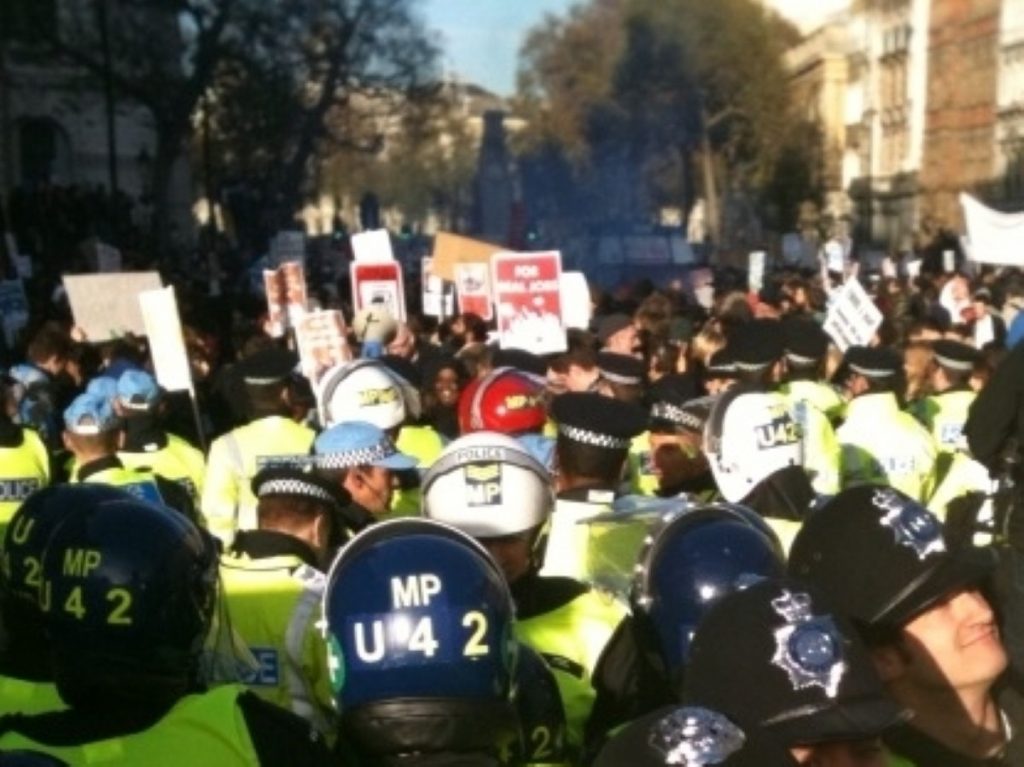Blow for protesters as European court declares kettling lawful
By Alex Stevenson Follow @alex__stevenson
Police were within their rights to deprive members of the public of access to food, water and toilets during a 2001 protest, the European court of human rights has ruled.
The controversial 'kettling' tactic deployed by the Metropolitan police to contain protests and prevent them spreading could be used far more in future protests as a result.
Three passers-by who ended up being kettled for seven hours during the anti-globalisation demonstration on May 1st 2001 had claimed that their right to liberty and security had been violated.


Police officers prevented the trio – George Black, Bronwyn Lowenthal and Peter O'Shea – from leaving the cordon, even though they had nothing to do with the 3,000-strong protest.
Law Lords had ruled against their claim relating to article five of the European Convention on Human Rights.
But they have pushed to take their case to the European court, which today ruled that kettling was the most effective way to protect members of the public from the danger of the protesters.
"The police had imposed the cordon to isolate and contain a large crowd in dangerous and volatile conditions," the court stated.
"This had been the least intrusive and most effective means to protect the public from violence.
"Although the police tried to start dispersing the crowd throughout the afternoon, they had been unable to do so as the danger had persisted."
The judgement will come as a relief to the coalition, which would have had to order a fundamental rethink of public order tactics ahead of the Olympic Games had today's ruling gone the other way.









